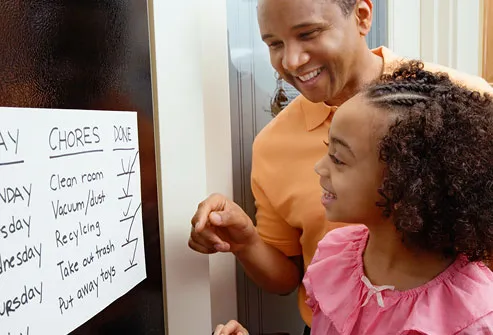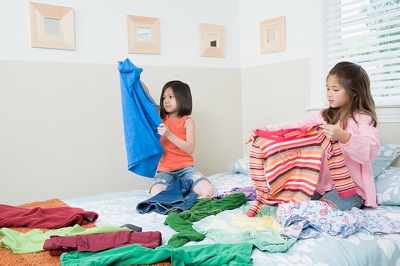
現代的孩子都很幸福,被父母捧在手心里呵護,很多父母都不捨得讓自己的小孩做家務,情願讓小孩多花時間在學業上。但你又是否知道,其實做家務是一個有益身心的活動,不但是一項運動能鍛煉身體,還是一個很好的機會讓孩子去思考怎樣才能把事情做好。如果你還在猶豫是否要讓孩子做家務,那就快來看看“中國日報”的一篇關於做家務的報導,讓你知道更多做家務的好處。
做家務的好處:

l 做家務就是一個體育鍛煉,無論你是掃地或割草,你的身體都是處於活動狀態。或許去健身房做運動是鍛煉身體的某一個部位的肌肉,但家務勞動卻是全身運動。雖然做家務不會很快建立很好的體能,但將家務勞動作為一個持久的習慣,你會發現你的身體變得更健康。
l 從小就培養孩子做家務,讓孩子學會分擔家裡事,等他們日後長大了,結婚成家的時候,也懂如何處理家庭的大小事務,而不是一竅不通,讓家裡一團糟

l 無亂家長還是小孩,做家務的時候,還能鍛煉思維,提高認知和解決問題的技能。即使是折疊衣物這麼簡單的任務,也能培養孩子分類或優先考慮的能力。今天,孩子學會整理衣服,褲子,襯衫和襪子。明天,他們可能會很好地確定工作中的主題和辦事模式。
l 做家務還能建立良好的職業道德和工作習慣。很多研究顯示,做家務的孩子相對比較有責任感,做事比較注重工作效果和質量。
以下是“中國日報”報導原文:

Traditionally, Chinese people, from the elite gentry to the vast peasantry, placed great emphasis on having youngsters do chores around the house as part of their upbringing. Reluctant children received an earful of wisdom such as: "If you do not clean up your floor, how can you clean up the world?"
This was because doing chores is good for children. It nourishes both their physical and mental well-being.
It is first of all a physical exercise to do chores. Whether you are sweeping the floor or mowing the lawn, your body is active. A singular activity in a gym may train a particular muscle or a group of them. Housework on the other hand gets the entire body in motion. It may not build your strength as quickly and effectively as weight lifting does, but housework can do wonders for your health if it becomes a lifelong habit.

There is a shocking lack of imagination in such an arrangement. Eventually, these children will grow up, get married and have their own families. Who, then, will take care of the household chores? Few parents seem to care about this. It is as if some fairies will show up during the night and do the laundry or cleaning. Many parents probably expect the future spouses of their children to do these chores, but unfortunately, these future spouses' parents may have similar thoughts.
Children, and adults as well, learn things when actively involved in doing work at home. They apply various motor, cognitive and problem-solving skills to do tasks at home. Even a task like folding laundry has the potential of training children to categorize or prioritize. Today they may be sorting clothes by pants, shirts and socks. Tomorrow they may be identifying themes and patterns in a qualitative study. Doing chores also builds professional ethics and work habits. Children doing chores learn to be responsible. They can be held accountable for the results and the quality of their work.
Sometimes parents know the importance of sharing work at home with children, but they do not know how. For instance, children are reluctant, or are asked to do tasks that require assistance. It takes plenty of parenting skills to get children to do chores in a way that builds them into healthy and productive individuals.
適合不同年齡兒童可做的家務:

2 到 3 歲幼童
- 整理床單
- 收拾玩具
- 掛衣服
- 餵寵物
- 擦桌子
4 到 5 歲幼童
上面列舉的每一項加:
- 整理床鋪
- 收拾桌子
- 佈置桌子
- 家具除塵
- 幫忙廚務
- 幫忙拿東西
 6 到 12 歲兒童
6 到 12 歲兒童
上面列舉的每一項加:
- 照顧寵物
- 烹調簡單的食物
- 吸塵,拖地
- 清潔浴室
- 洗衣服和乾衣服
- 疊衣服
13 歲以上少年
上面列舉的每一項加:
- 換燈泡
- 替換吸塵機清潔袋
- 清潔冰箱
- 清潔爐子和烤箱
- 做飯
- 制定購物清單
- 洗衣服和乾衣服
- 剪草